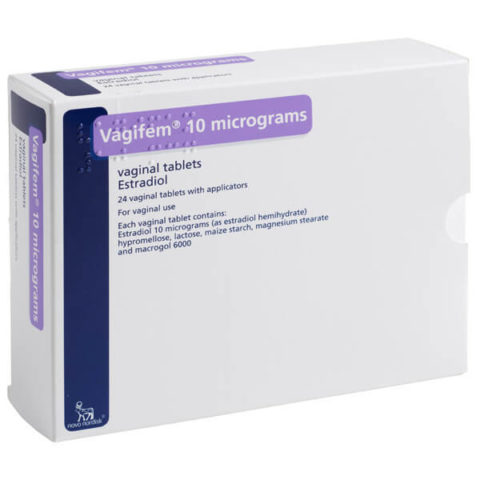-
NHS
-
Oldham Services
-
Shop
-
Help & Advice
-

£39.99
Variety of delivery options including next day & free delivery.
Pharmacy, clinic and prescribers based in Greater Manchester.
Start your treatment with a quick and free online consultation.
 This is a prescription product.
This is a prescription product.You need to complete a consultation form and allow our pharmacists to access your NHS records for review before we can issue this treatment.
Variety of delivery options including next day & free delivery.
Pharmacy, clinic and prescribers based in Greater Manchester.
Start your treatment with a quick and free online consultation.
Fill in a quick online consultation for our licensed pharmacists to review.
Our pharmacists will review your treatment to ensure it’s suitable.
Your treatment will be delivered to your door quickly & discretely.
| Medication Name | Vagifem |
| Type and Form of Medicine | Vaginal Tablet |
| What it Does | Treats vaginal dryness |
| Active Ingredients | Estradiol |
| Strength | 10mcg |
| Size | 24 tablets |
| Patient Information Leaflet | Click here |
Vagifem is a vaginal tablet that contains the hormone estradiol, a form of oestrogen. It is specifically designed to treat symptoms of vaginal atrophy, such as dryness, itching, and discomfort, which often occur during menopause. Vagifem delivers a small amount of oestrogen directly to the vaginal tissues, helping to restore moisture and elasticity.
Vagifem is primarily used to treat vaginal dryness, a common symptom of menopause. This condition can cause discomfort, itching, and pain during intercourse. Vagifem helps alleviate these symptoms by replenishing the oestrogen levels in the vaginal tissues. In addition to treating vaginal dryness, Vagifem may also be used to address other menopausal symptoms affecting the vaginal area, such as irritation and inflammation.
Vagifem works by releasing estradiol, a form of oestrogen, directly into the vaginal tissues. During menopause, the body’s natural oestrogen levels decrease, leading to thinning and drying of the vaginal walls. By delivering estradiol locally, Vagifem helps to replenish the oestrogen levels in the vaginal tissues. This process restores the natural moisture and thickness of the vaginal walls, reducing dryness, itching, and discomfort. The localised delivery ensures that the hormone acts directly where it is needed, with minimal absorption into the bloodstream.
Vagifem is suitable for women experiencing symptoms of vaginal atrophy due to menopause. It is particularly beneficial for those who suffer from vaginal dryness, itching, and discomfort. However, Vagifem may not be suitable for everyone. Women who have a history of breast cancer, unexplained vaginal bleeding, or blood clots should avoid using Vagifem. Additionally, those with liver disease, porphyria, or a known allergy to any of the ingredients should not use this medication. Always consult your doctor or pharmacist before starting Vagifem to ensure it is appropriate for your condition.
Use Vagifem once daily for the first two weeks. After this initial period, reduce the frequency to twice a week, with at least three days between doses.
Continue using Vagifem for as long as your doctor or pharmacist recommends. The duration of treatment may vary depending on your symptoms and response to the medication.
Like all medications, Vagifem can cause side effects. Below are some common, uncommon, and serious side effects you may experience.
For a full list of side effects, please refer to the patient information leaflet.
Active Ingredients: The active ingredient in Vagifem is estradiol.
Other Ingredients: Vagifem also contains hypromellose, lactose monohydrate, maize starch, and magnesium stearate.
EXCELLENT




